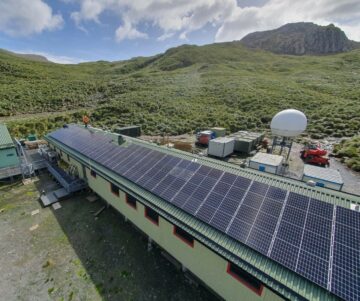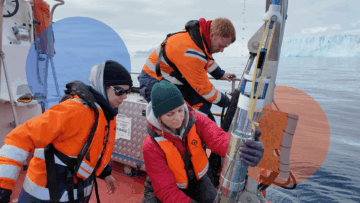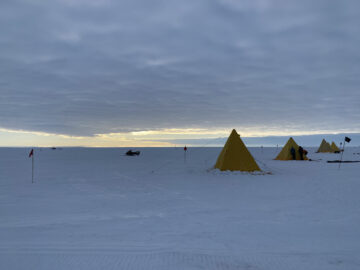Climate Science
The post Record phenological responses to climate change in three sympatric penguin species appeared first on British Antarctic Survey.
The post Thermal responses and climate change implications of spring and autumn spawning Patagonian squid (Doryteuthis gahi) embryos appeared first on British Antarctic Survey.

Are world leaders downplaying the evidence of climate change? Three scientists issue a stark warning to those in power. Dr James Kirkham from British Antarctic Survey, Professor Chris Stokes from … The post Earth’s frozen regions are sending a clear warning about climate change – but politicians are ignoring it appeared first on British Antarctic…
The post Major paleogeographic and paleoclimatic changes during the late Paleozoic, Early Cretaceous and Cenozoic of central Australia and their influence on recycling of sediments appeared first on British Antarctic Survey.
The post Climate Change, Fisheries Management, and Increases in Demersal Fish Distribution in a Southern Ocean Biodiversity Hotspot appeared first on British Antarctic Survey.

British Antarctic Survey (BAS) are committed to achieving net zero carbon emissions by 2040. Transparency is central to our approach – we do not purchase carbon offsets. Instead, we prioritise … The post BAS Carbon Footprint Report 2024/2025: Our journey to net zero appeared first on British Antarctic Survey.
The post Century-scale effect of climate change on meteorite falls appeared first on British Antarctic Survey.

Glaciers – immense rivers of ice, containing vast volumes of freshwater – are often considered barren environments, and the melting of them seen as an indicator of climate change. But … The post Feeding the ocean, an icy solution appeared first on British Antarctic Survey.

Antarctica could see a doubling of extreme weather events – such as atmospheric rivers – by 2100, with implications for future sea level rise. A new study published last week … The post Climate change supercharges atmospheric rivers over Antarctica appeared first on British Antarctic Survey.
